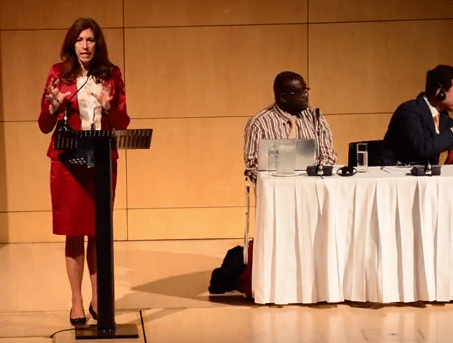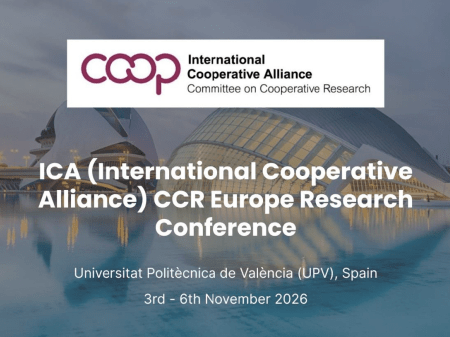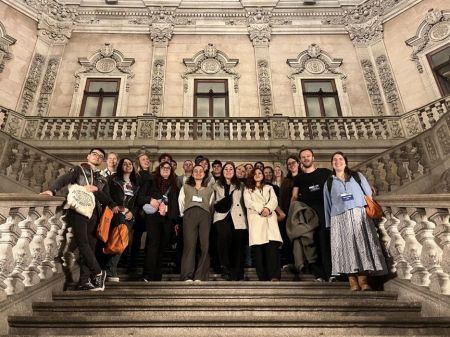We are pleased to share news of a new book relevant to…
Co-operatives are essential in achieving FAOs objectives

Co-operatives have a role to play in achieving the objectives set up by the Food and Agricultural Organization (FAO), delegates heard at ICA’s General Assembly in Cape Town.
Speaking at a special session on food security, Marcela Villarreal, Director FAO, office for partnerships, advocacy and capacity development, described the main objectives set by the FAO. She also referred to the important contribution of agricultural co-operatives, the theme of last year’s World Food Day.
By 2050 the world population could reach 9.1 billion people and producers agricultural production will have to increase by at least 60 per cent. This will also require an increase in agricultural outputs, investments and lands. As the food consumption systems are changing, the quality of food will also have to increase, said Ms Villarreal. An increase in food production will determine an intensifying demand for energy and natural resources.
To meet these challenges, farmers will need to be able to cope with man-made and natural crisis, from price volatility to natural disasters and climate change.
With this prospect ahead, the FAO developed a new agenda for the next coming years, focused on five key objectives: increasing food production but in a sustainable way, reducing rural poverty, creating inclusive and efficient agricultural food systems and food chains and reducing resilience to shocks and crisis.
“Co-ops are essential in every one of these strategic objectives. They are embedded in each of these,” said Ms Villarreal
She added that food production was one important part of food security, but not the only aspect. The world has made progress in increasing food production, but not in terms of access, she argued.
Both Millenium Development Goals (MDGs) and World Food Summit targets are about cutting in half the number or proportion of people undernourished, but the only acceptable target is 0, said Ms Villarreal. The world has been able to make hunger levels decrease, but not enough, she argued.
In spite of good progress in meeting the MDG 1, the many states across the world still behind in terms of meeting the World Food Summit targets.
“We are not there to do it alone, we are there to do it through partners like yourselves. We are seeing within FAO that organised collective action is a main way of addressing all of the challenges that I outlined earlier”.
Photo: Marcela Villarreal speaking at ICA's Global Conference in Cape Town.




